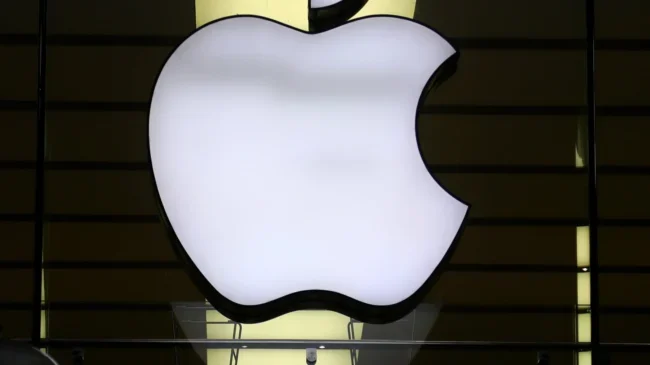Apple EU Browser Investigation: How Apple Avoided Fines Under the Digital Markets Act
Apple is reportedly set to escape financial penalties from the European Union (EU) over concerns about its browser selection policies on iPhones. According to sources cited by Reuters, the Apple EU browser investigation is expected to conclude next week, with regulators accepting Apple’s recent changes made in compliance with the Digital Markets Act (DMA).
The European Commission had been investigating whether Apple’s browser selection screen restricted user choice, making it harder for users to switch to competing browsers or search engines. With Apple implementing adjustments to address these concerns, the EU is now likely to close the case without issuing fines.
However, the tech giant still faces other regulatory challenges, including potential fines related to different violations of the DMA.
Why Was the EU Investigating Apple?
1. Digital Markets Act (DMA) and Apple’s Compliance Issues
The DMA is a landmark EU regulation aimed at preventing anti-competitive practices by major tech companies like Apple, Google, and Meta. It ensures fair competition by making it easier for users to switch between different digital services, such as:
✔ Internet browsers
✔ Search engines
✔ App stores
✔ Social media platforms
Under the DMA, Apple is required to offer a fair choice of browsers on iPhones and iPads, rather than prioritizing its own Safari browser.
2. Concerns About Apple’s Browser Selection Screen
The Apple EU browser investigation specifically looked into:
🔹 The way Apple presents alternative browsers – Regulators worried Apple’s design could discourage users from switching.
🔹 Safari’s dominance on iPhones – The Commission questioned whether Apple was unfairly promoting Safari over competitors.
🔹 Restrictions on competing browsers – Unlike Android, where users can easily switch their default browser, iOS has historically made this process more complex.
The EU feared these practices were violating the DMA by limiting consumer choice and creating an unfair advantage for Apple’s own ecosystem.
How Apple Avoided DMA Fines
1. Apple’s Response to EU Concerns
To avert potential penalties, Apple implemented new changes to comply with the DMA. These include:
✅ Modifying the browser selection screen – Apple adjusted the way it presents browser choices, making it easier for users to pick alternatives like Google Chrome, Firefox, or Microsoft Edge.
✅ Simplifying the default browser change process – Apple streamlined how users set non-Safari browsers as their default.
✅ Allowing more transparency in browser options – Apple now provides clearer information on available browsers when setting up a new iPhone.
These changes satisfied EU regulators, leading to the closure of the investigation without a fine.
2. What This Means for iPhone Users
📌 More Browser Freedom: iPhone users will now have a fairer choice when selecting their preferred web browser.
📌 Easier Default Browser Settings: Switching to a non-Safari browser will be simpler and more intuitive.
📌 More Competition: Browser companies like Google, Mozilla, and Opera could benefit from increased visibility on iOS.
While Apple has made adjustments to avoid penalties this time, it may still face further scrutiny under the DMA for other competitive practices.
EU’s Wider Crackdown on Tech Giants
1. Fines and Compliance Orders for Apple & Meta
Although Apple has avoided penalties for its browser selection practices, the EU is still expected to issue fines and compliance orders for other violations.
🔹 Meta Platforms (Facebook & Instagram) are also under scrutiny for how they handle user data and advertising.
🔹 Apple’s App Store policies remain a major concern for regulators, particularly in how Apple charges developers and limits third-party payments.
Under the DMA, companies that fail to comply risk fines of up to 10% of their global annual revenue.
2. US-EU Tensions Over Digital Regulations
The EU’s strict enforcement of the DMA has also triggered political tensions with the United States.
📢 Key Points of Conflict:
✔ US President Donald Trump has criticized EU regulations, arguing they unfairly target American tech companies.
✔ The US government has previously warned the EU against imposing excessive fines on firms like Apple, Google, and Meta.
✔ With the browser investigation closing and new fines expected against Apple and Meta, diplomatic tensions could escalate further.
Despite political pressure, the EU is committed to enforcing the DMA and ensuring a fairer digital marketplace.
What’s Next for Apple and the DMA?
With the browser investigation resolved, Apple still faces:
🔹 Ongoing EU scrutiny – Further investigations into App Store policies and digital payments.
🔹 More potential fines – If Apple fails to comply with other DMA requirements, it could still face substantial financial penalties.
🔹 Global regulatory challenges – Other regions, including the US and UK, are considering similar regulations to curb Apple’s dominance.
Apple may need to continue adjusting its policies to stay compliant with evolving global digital regulations.
Final Thoughts: Apple’s EU Browser Investigation and Its Impact
The Apple EU browser investigation highlights the growing regulatory pressure on big tech companies. While Apple successfully avoided fines this time, the company must remain vigilant to stay in line with the DMA and other global regulations.
📢 Key Takeaways:
✔ Apple modified its browser selection screen to comply with EU rules.
✔ The investigation will close without a fine, but further scrutiny remains.
✔ The DMA is reshaping digital competition, impacting Apple, Google, and Meta.
✔ The US-EU tech dispute may escalate, with Apple at the center of ongoing debates.
As Apple navigates new regulatory landscapes, its future strategies will play a crucial role in shaping the competitive digital market.







